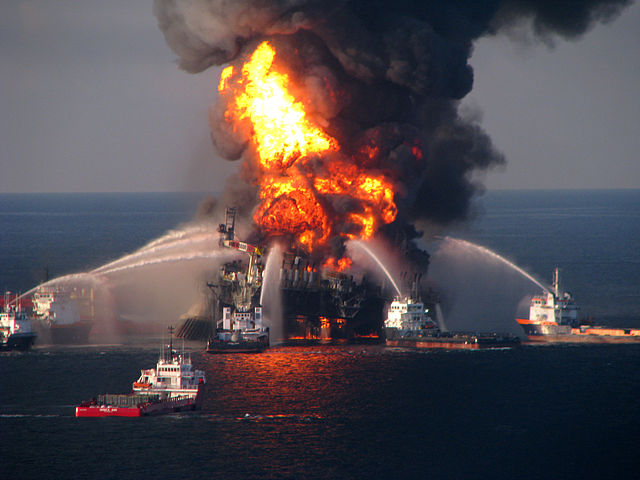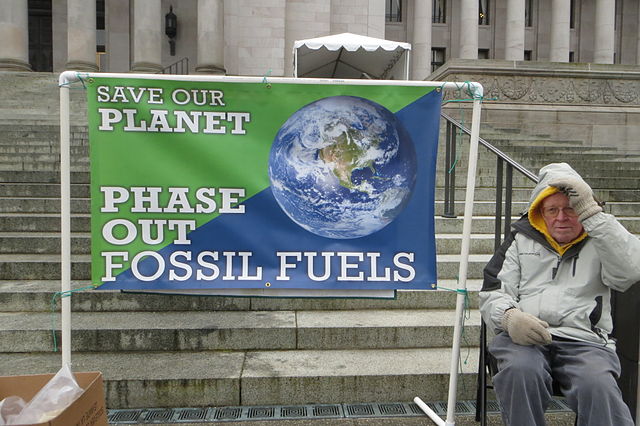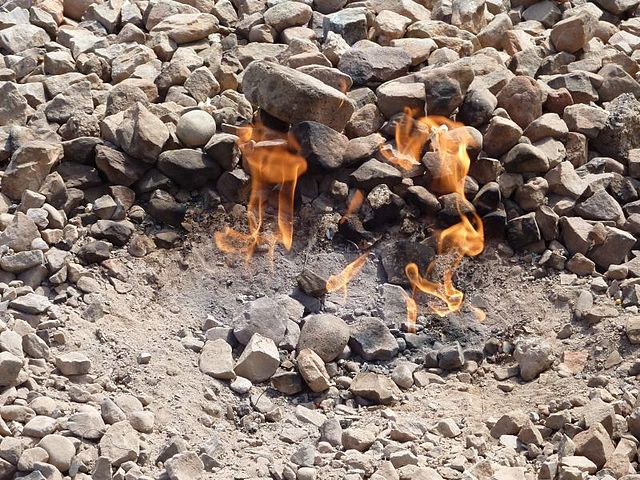Fossil fuel phase-out is the gradual reduction of the use and production of fossil fuels to zero, to reduce deaths and illness from air pollution, limit climate change, and strengthen energy independence. It is part of the ongoing renewable energy transition, but is being hindered by fossil fuel subsidies.
The 2010 Deepwater Horizon oil spill discharges 4.9 million barrels (780,000 m3).
Natural gas well in Germany
Protest at the Legislative Building in Olympia, Washington. Ted Nation, a long-time environmental activist, beside protest sign.
A fossil fuel is a hydrocarbon-containing material such as coal, oil, and natural gas, formed naturally in the Earth's crust from the remains of dead plants and animals that is extracted and burned as a fuel. Fossil fuels may be burned to provide heat for use directly, to power engines, or to generate electricity. Some fossil fuels are refined into derivatives such as kerosene, gasoline and propane before burning. The origin of fossil fuels is the anaerobic decomposition of buried dead organisms, containing organic molecules created by photosynthesis. The conversion from these materials to high-carbon fossil fuels typically requires a geological process of millions of years.
Image: Chuhuo
Image: Petroleum sample
Image: Bituminous Coal






